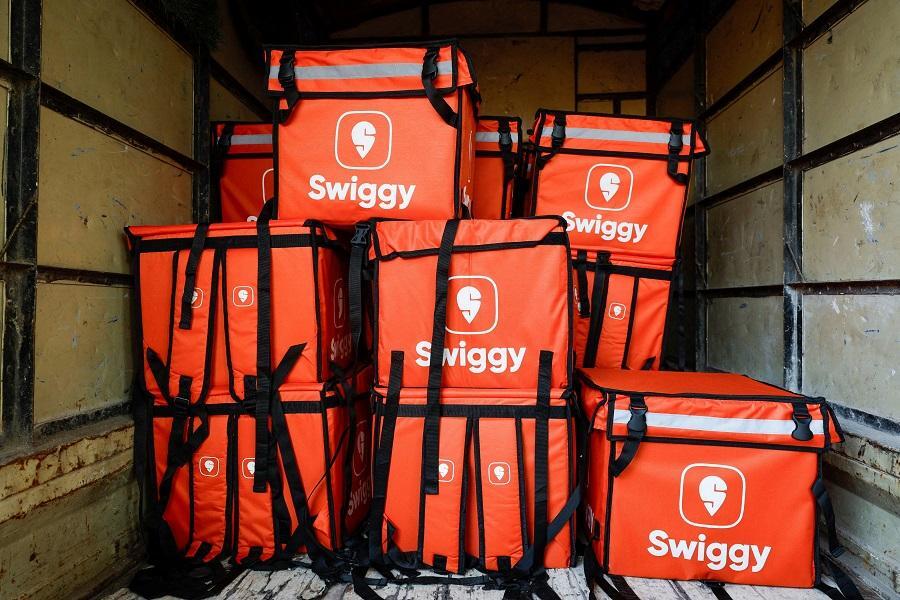 |
|
The Indian online food delivery giant, Swiggy, experienced a significant downturn on Thursday, with its shares plummeting approximately 8% to a record low. This sharp decline is directly attributable to the company's announcement of a widening third-quarter loss. The increased financial burden stems primarily from the escalating costs associated with the company's aggressive expansion strategy in the fiercely competitive quick commerce market. This sector, characterized by the delivery of a diverse range of products within a remarkably short timeframe (typically under 10 minutes), has become a key battleground for major players such as Swiggy, Zomato, and Zepto.
The intense competition within the quick commerce arena necessitates substantial investments in infrastructure. To ensure swift and efficient delivery, companies are rapidly expanding their network of warehouses and employing advanced logistical solutions. This rapid expansion, however, comes at a significant cost. Swiggy's reported widening losses highlight the financial strain inherent in this competitive landscape. The company's efforts to gain market share and outpace rivals like Zomato and Zepto are proving to be a costly endeavor. The current financial performance raises questions about the long-term viability of the aggressive expansion strategies employed by these companies.
The significant drop in Swiggy's stock price reflects investor concerns regarding the company's profitability and its ability to navigate the intensely competitive quick commerce market. Analysts are carefully examining the company's financial performance and its strategic decisions. The focus on quick commerce, while strategically important for future growth, presents immediate challenges related to profitability. The high costs associated with maintaining a vast network of warehouses, employing delivery personnel, and managing complex logistics pose significant hurdles. Whether Swiggy can successfully adapt its strategy to achieve profitability in the face of this intense competition remains a crucial question for investors and market analysts alike.
The situation at Swiggy underscores the broader challenges facing companies operating in the rapidly evolving quick commerce sector. The race to establish market dominance is demanding substantial financial investments, putting pressure on profitability. The sustainability of these aggressive expansion strategies needs further scrutiny. While quick commerce offers significant potential for growth and convenience for consumers, the financial realities facing companies like Swiggy highlight the inherent risks and challenges involved. Future success will likely depend on a careful balancing act between expansion, operational efficiency, and ultimately, profitability.
Several factors contribute to the high cost structure of quick commerce. The need for strategically located warehouses within close proximity to customers is a significant expense. Maintaining a large and efficient delivery workforce adds another layer of cost. Advanced technological solutions, including sophisticated order management systems and real-time tracking capabilities, are also substantial investments. Furthermore, the intense competition often leads to price wars and promotional offers, further impacting profitability. The delicate balance between attracting and retaining customers, managing costs, and achieving profitability presents a significant challenge for all players in this dynamic market.
The future prospects of Swiggy and other quick commerce companies will depend on their ability to innovate, optimize their operations, and potentially explore new revenue streams. This may involve exploring strategic partnerships, leveraging technology more effectively, and possibly diversifying their product offerings. The ultimate success or failure of these companies hinges on their capacity to achieve a sustainable balance between growth and profitability in a highly competitive environment. The current market dynamics suggest that a period of consolidation or strategic adjustments may be necessary for many players in the quick commerce sector.
The recent stock market performance of Swiggy serves as a cautionary tale for investors and a valuable lesson for companies operating in rapidly expanding, competitive sectors. The pursuit of rapid growth and market dominance must be tempered with a keen understanding of the financial realities and potential risks involved. The need for a sustainable business model that balances ambition with fiscal responsibility is crucial for long-term success. Investors will closely scrutinize the strategies employed by companies in the quick commerce sector, focusing on their ability to navigate the complexities of this challenging and dynamic market.
The ongoing evolution of the quick commerce sector promises to continue shaping the landscape of online delivery services. Consumer preferences, technological advancements, and competitive dynamics will all play crucial roles in determining the ultimate winners and losers in this fiercely contested arena. As companies like Swiggy, Zomato, and Zepto continue to vie for market share, the pressure to innovate, optimize, and achieve profitability will only intensify. The financial performance of these companies will undoubtedly remain a key area of focus for investors and market analysts in the coming months and years.
